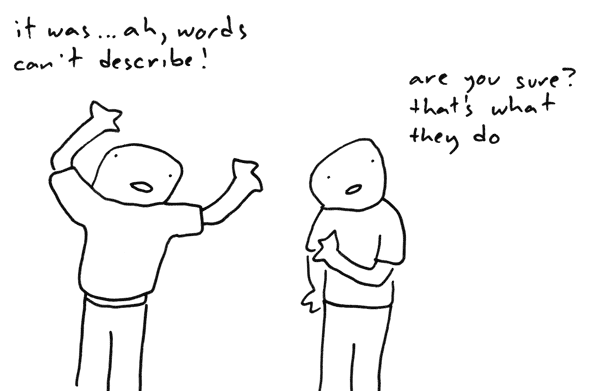Word Nerd
I am a self-proclaimed word nerd. When I come across a word I don’t know, first, I try to figure out what it means by context. Then, I look it up in my handy-dandy, good, old fashioned Webster’s dictionary! Finally, I put the word into use. For the next week, I incorporate it into my everyday use. I may be greeted with a roll of the eyes at the use of “kanban” and “lagniappe,” but it does not deter me. The more I use these new words, the more likely they will become part of my everyday language.
Being an obsessed word nerd helps me become a better communicator and writer to effectively convey my thoughts, ideas, and opinions. You may think this word quest is floccinaucinihilipilificate, or worthless, but I believe building vocabulary is valuable for three reasons (beyond boosting SAT and ACT scores).
1) Vocabulary Frees Your Mind.
The richer your vocabulary, the more open you are to new ways of looking at situations, solving problems, and new thought processes. People with limited vocabulary tend to stick to familiar patterns of thought and limited perspective.
“The more words you know, the more clearly and powerfully you will think … and the more ideas you will invite into your mind.” – Wilfred Funk, Author
2) Vocabulary Improves Communication.
Knowing the right word at the right time will help you to make your point clearly and concisely in both oral and written communications. By having numerous words in your repertoire, you’ll know just the right “go to” word securing your ability to communicate well and persuade powerfully.
“The difference between the right word and the almost right word is the difference between lightning and a lightning bug.” –Mark Twain, Author
3) Vocabulary Equals Success.
Professional and personal success depends on communication and critical thinking. Therefore, your vocabulary is one of the biggest indicators of your success.
“Without knowing the force of words, it is impossible to know more.” – Confucius
I encourage you to become a word nerd too! Your pursuit of learning a new word a day can be as easy as opening a book or checking out these sites:


 Amy LaGrasta, Flex School Counseling Senior Manager, helps students make informed decisions about courses, career and college options, and the study habits needed for online success. Prior to joining FLVS, she served as the guidance director at Estero High School in Lee County, FL where she was honored with the Teacher of Distinction award.
Amy LaGrasta, Flex School Counseling Senior Manager, helps students make informed decisions about courses, career and college options, and the study habits needed for online success. Prior to joining FLVS, she served as the guidance director at Estero High School in Lee County, FL where she was honored with the Teacher of Distinction award.
Thaumaturgic post, Amy – I shared it on my facebook fan page. Thanks!
I am a private tutor of students from grade school to grad school. I ended up on your post while looking for good vocabulary resources for some of my middle school students preparing for the ISEE test.
I agree with your sentiments, but I found a word used incorrectly (or more likely a misspelling of the kind that a spell-check would never find) in your post. While I completely understand that blog entries and the like aren’t truly ‘formal writing’ scenarios, having such a problem in a post specifically about vocabulary building is a bit hypocritical. We tell students all the time about using spell-check, but nothing ever replaces actually walking away for an hour – then reading aloud to make sure everything is correct.
(Read #3 completely out loud and see if you find the issue).
I did find it fun to have one of my students read this and tell me what they would do to improve it. I searched all around the internet and have found this same incorrect word usage/misspelling in a few other places as well. It really makes me realize how people tend to automatically ‘fix’ words to match what it should be without even thinking about it. My international and ESOL students get a bit frustrated by these problems though.
Thanks for the vocab links, I really wish there were more youth/teen targeted books that would incorporate expanded vocabulary in common usage. Imagine if Twilight used some big SAT words. Kids of all ages would be learning and expanding their vocabulary without even trying.
Hi Susan,
I appreciate you bringing this to my attention. The post has now been corrected.
Thanks for reading,
Amy La Grasta